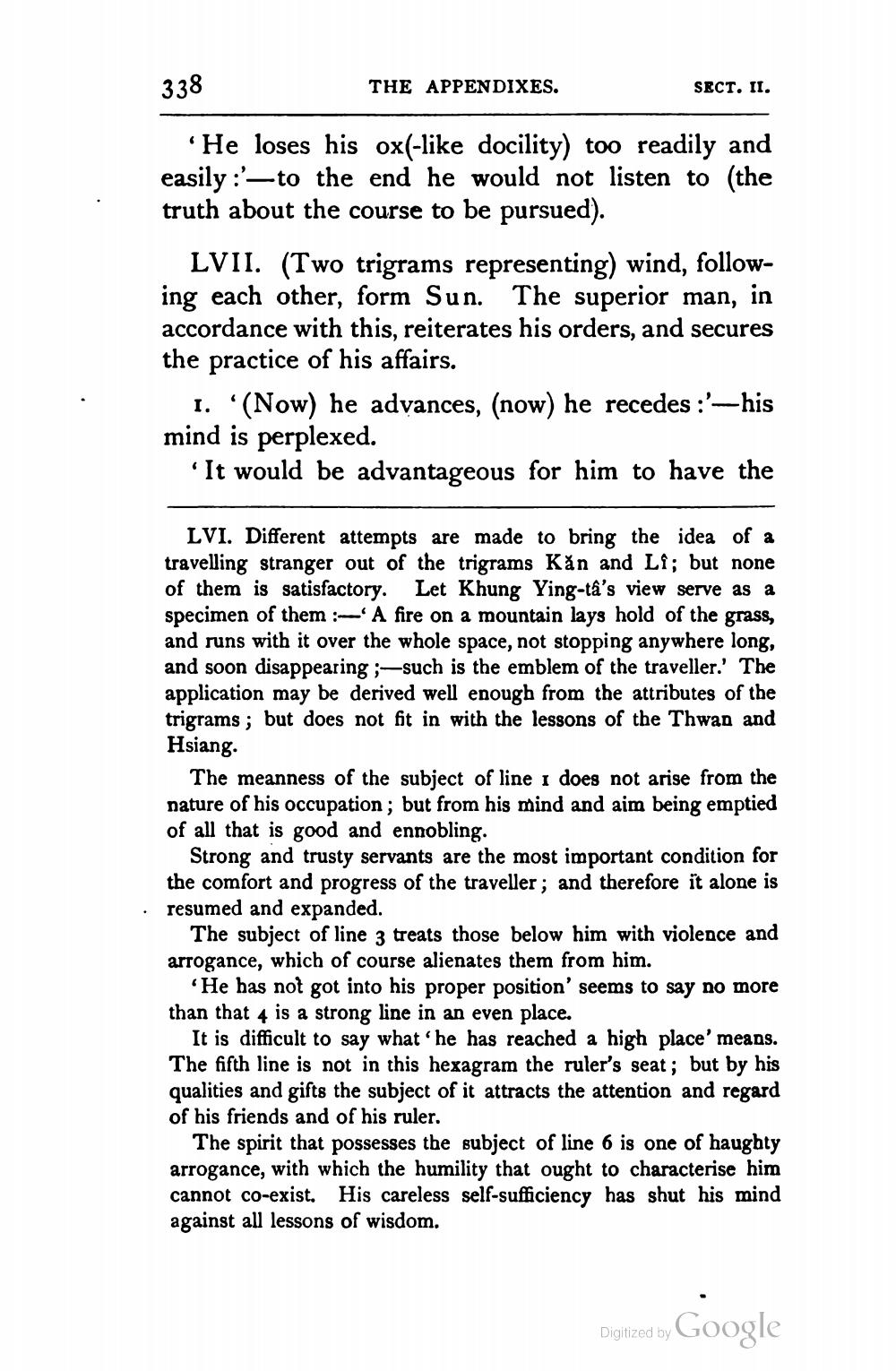________________
338
THE APPENDIXES.
SECT. II.
'He loses his ox(-like docility) too readily and easily :'-to the end he would not listen to the truth about the course to be pursued).
LVII. (Two trigrams representing) wind, following each other, form Sun. The superior man, in accordance with this, reiterates his orders, and secures the practice of his affairs.
1. ‘(Now) he advances, (now) he recedes :'-his mind is perplexed.
It would be advantageous for him to have the
LVI. Different attempts are made to bring the idea of a travelling stranger out of the trigrams Kån and Li; but none of them is satisfactory. Let Khung Ying-ta's view serve as a specimen of them :-'A fire on a mountain lays hold of the grass, and runs with it over the whole space, not stopping anywhere long, and soon disappearing ;-—such is the emblem of the traveller.' The application may be derived well enough from the attributes of the trigrams; but does not fit in with the lessons of the Thwan and Hsiang.
The meanness of the subject of line 1 does not arise from the nature of his occupation; but from his mind and aim being emptied of all that is good and ennobling.
Strong and trusty servants are the most important condition for the comfort and progress of the traveller; and therefore it alone is resumed and expanded.
The subject of line 3 treats those below him with violence and arrogance, which of course alienates them from him.
"He has not got into his proper position' seems to say no more than that 4 is a strong line in an even place.
It is difficult to say what he has reached a high place' means. The fifth line is not in this hexagram the ruler's seat; but by his qualities and gifts the subject of it attracts the attention and regard of his friends and of his ruler.
The spirit that possesses the subject of line 6 is one of haughty arrogance, with which the humility that ought to characterise him cannot co-exist. His careless self-sufficiency has shut his mind against all lessons of wisdom.
Digitized by Google
Digitized by




